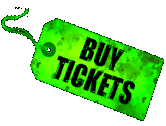If there’s one thing we’ve learned from our experiences with haunted houses in Dallas / Fort Worth, it’s how to tell a good horror story. You know, not those hokey stories you told around the campfire back when you were a boy scout. One that your listeners remember long after you’ve turned the lights back on. One that makes them pull the covers all the way up and sleep with the lights on – every night for the next month.
Research It – We’ve all heard the story about the guy with the hook who tries to nab the couple at Lover’s Lane, but do you really know all the details? Google it. Research your story and dig up all the “facts” you can. The more details you can give your listeners the more believable your story.
Localize It – How many times have you heard someone start off with, “This guy and his girlfriend decided to go camping somewhere out west.” Right off the bat you know this isn’t a real story. At best it’s an urban legend that might be based on a true story that somebody’s sister’s cousin’s boyfriend’s uncle heard a hundred years ago.
Set your story in Your Town, Texas USA. It’s a safe bet that your tale of horror is made-up, as most are, so it doesn’t matter where it happened – as long as it happened close to home. It’s much creepier to imagine that guy with the hook is lurking just around the corner in a deserted warehouse on the corner of Main Street and Vine because sooner or later everybody has to pass that corner.
Personalize It – Give the characters names so your listeners can make a personal connection. “This guy and his girlfriend were driving along…” is too vague. It could be anyone, or no one at all. Give your characters names. Give them physical descriptions. Give them personalities so your listeners will feel sorry for them when they get killed by The Mangler.
Increase Your Vocabulary – Gross, ugly, monster, bloody… yeah, those are all OK. But what if you threw in “horribly disfigured” or “a gelatinous mass of blood, mucus and gore” Spend a few minutes with an online thesaurus to learn one or two new useful words that will help make your story more exciting.
Rehearse It – Now, turn out the lights, stand in front of a mirror with a flashlight under your chin and rehearse your story until even you’re scared. That’s when you know your story’s ready for the campfire.
Happy Scaring
Thrillvania Haunted House Park


